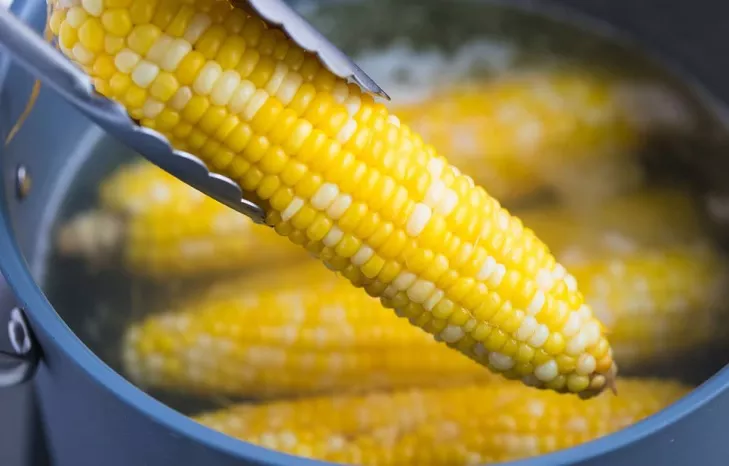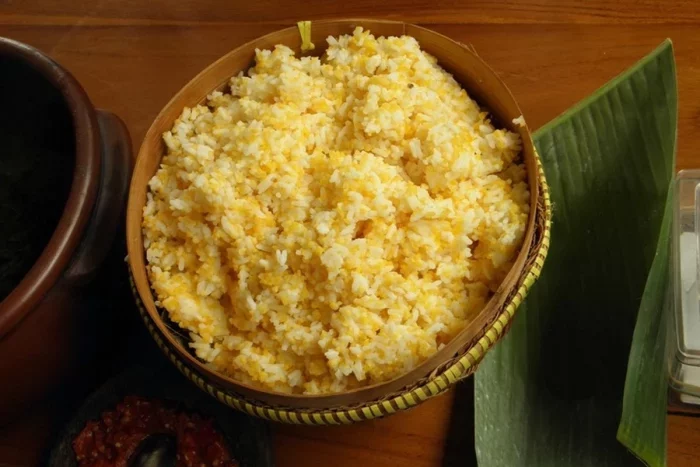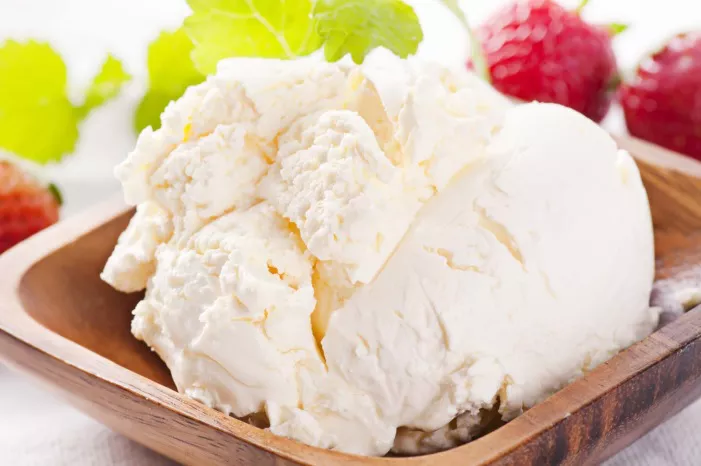Corn, a staple crop with a rich history dating back thousands of years, is not only a symbol of agricultural abundance but also a nutritional powerhouse that deserves more recognition for its health benefits. Often overshadowed by more glamorous superfoods, corn is a versatile grain that plays a crucial role in the diets of millions around the world. In this comprehensive article, we will delve into the various aspects of corn’s nutritional profile, its health benefits, and its role in promoting overall well-being. From its origins as a Mesoamerican staple to its current status as a global dietary cornerstone, corn’s nutritional value and versatility make it a fascinating subject of study.
Historical and Cultural Significance of Corn
Corn, scientifically known as Zea mays, is believed to have originated in what is now modern-day Mexico. The indigenous peoples of the Americas, including the Maya and the Aztecs, cultivated corn as a staple crop as early as 9,000 years ago. It was not only a dietary staple but also held deep cultural and religious significance. Corn, known as “maize” by indigenous people, played a central role in their mythology, often symbolizing fertility, life, and sustenance.
The cultivation of corn gradually spread throughout the Americas, becoming a fundamental part of indigenous diets. Christopher Columbus’s voyages to the New World in the late 15th century introduced corn to Europe, and it quickly spread to other parts of the world. Today, corn is a global commodity and a staple food in many countries, particularly in regions where it grows abundantly.
Nutritional Composition of Corn
Corn is a nutrient-dense grain with a diverse nutritional profile that offers a wide range of health benefits. Understanding its composition is essential to appreciate its value in our diets.
Carbohydrates: Corn is primarily composed of carbohydrates, making up about 74% of its total weight. It is an excellent source of complex carbohydrates, providing a sustained source of energy. The carbohydrates in corn are primarily in the form of starch, which is slowly digested, helping to maintain stable blood sugar levels.
Dietary Fiber: Corn is a good source of dietary fiber, with approximately 9% fiber content. Dietary fiber is essential for digestive health, promoting regular bowel movements, and reducing the risk of digestive disorders such as constipation. The fiber in corn also helps in weight management by promoting a feeling of fullness and reducing overall calorie intake.
Protein: Corn contains protein, accounting for about 9% of its total weight. While it is not as protein-rich as some other grains and legumes, it still contributes to overall protein intake. Corn protein is considered lower in certain essential amino acids like lysine, so it is often complemented with other protein sources in diets.
Healthy Fats: Corn contains a small amount of healthy fats, primarily in the form of unsaturated fats, including both monounsaturated and polyunsaturated fats. These fats contribute to heart health by helping to lower LDL (bad) cholesterol levels.
Vitamins: Corn is a good source of several essential vitamins, including vitamin C, niacin (vitamin B3), pantothenic acid (vitamin B5), and folate (vitamin B9). These vitamins play crucial roles in various bodily functions, including immune support, energy metabolism, and cell repair.
Minerals: Corn provides important minerals like magnesium, phosphorus, and potassium. These minerals are vital for maintaining bone health, regulating blood pressure, and supporting muscle and nerve function.
Antioxidants: Corn contains various antioxidants, such as zeaxanthin and lutein, which are carotenoids that support eye health and may reduce the risk of age-related macular degeneration (AMD).
The Diversity of Corn Varieties
Corn is not a one-size-fits-all crop. There is a remarkable diversity of corn varieties, each with its unique characteristics, nutritional content, and culinary uses. Understanding these variations can help individuals make informed choices about the type of corn that best suits their dietary needs and preferences.
Dent Corn: Dent corn, also known as field corn, is the most widely grown type of corn and is typically used for livestock feed, industrial purposes, and corn-based products like cornmeal and corn syrup. It gets its name from the indentation or “dent” that forms at the top of the kernel as it dries.
Sweet Corn: Sweet corn is the type of corn that is harvested in its immature state when the kernels are still tender and sweet. It is the variety most commonly consumed by humans and is a popular addition to summer menus. It is available in yellow, white, and bicolor varieties, each with a slightly different flavor profile.
Popcorn: Popcorn is a unique variety of corn that has a hard, moisture-sealed hull. When heated, the moisture inside the kernel turns into steam, causing the kernel to explode and “pop.” Popcorn is not only a beloved snack but also a source of whole grains and fiber when prepared without excessive butter or salt.
Flint Corn: Flint corn, also known as Indian corn, is characterized by its hard, multicolored kernels. It is often used decoratively in autumn arrangements and cornucopias, but it can also be ground into cornmeal and used in traditional Native American dishes like hominy and grits.
Flour Corn: Flour corn has a soft, starchy kernel that is easily ground into fine cornmeal or corn flour. It is commonly used in making tortillas, tamales, and various types of bread.
Health Benefits of Corn
Corn offers numerous health benefits that make it a valuable addition to a balanced diet. From promoting heart health to supporting digestive function, here are some of the key advantages of incorporating corn into your meals.
Heart Health: The fiber content in corn helps reduce LDL (bad) cholesterol levels in the bloodstream, lowering the risk of heart disease. Additionally, the presence of healthy unsaturated fats and antioxidants in corn contributes to overall cardiovascular health.
Digestive Health: The dietary fiber in corn aids in maintaining regular bowel movements and preventing constipation. A healthy digestive system is essential for nutrient absorption and overall well-being.
Weight Management: Corn’s high fiber content can help control appetite and reduce calorie intake by promoting a feeling of fullness. This can be beneficial for individuals looking to manage their weight.
Eye Health: Corn contains zeaxanthin and lutein, two carotenoids that are essential for eye health. These antioxidants may reduce the risk of age-related macular degeneration (AMD) and cataracts.
Energy Source: The complex carbohydrates in corn provide a steady source of energy, making it an excellent option for athletes and those with active lifestyles.
Antioxidant Properties: Corn’s antioxidants, including vitamin C and certain phytochemicals, help combat free radicals in the body, reducing oxidative stress and lowering the risk of chronic diseases.
Bone Health: The presence of minerals like magnesium and phosphorus in corn contributes to strong bones and teeth. These minerals are crucial for maintaining bone density and overall skeletal health.
Pregnancy Support: Corn is a good source of folate (vitamin B9), which is essential for pregnant women as it helps prevent neural tube defects in developing fetuses.
Blood Pressure Regulation: The potassium content in corn helps regulate blood pressure by balancing the body’s sodium levels. This can reduce the risk of hypertension and related cardiovascular issues.
Diabetes Management: The slow digestion of corn’s complex carbohydrates can help stabilize blood sugar levels, making it a suitable choice for individuals with diabetes when consumed in moderation.
Corn in the Modern Diet
The versatile nature of corn makes it a popular ingredient in a wide range of culinary dishes around the world. From traditional recipes to modern innovations, corn plays a vital role in global cuisine.
Corn on the Cob: The quintessential summer treat, corn on the cob is often boiled or grilled and enjoyed with a variety of seasonings, such as butter, salt, and herbs.
Corn Tortillas: Corn tortillas are a staple in Mexican and Central American cuisine. They serve as the base for tacos, enchiladas, and other delicious dishes.
Cornbread: Cornbread is a classic American dish made from cornmeal. It can be sweet or savory and is often served as a side dish or used in stuffing recipes.
Polenta: Polenta is a creamy Italian dish made from finely ground cornmeal. It can be served as a side dish, topped with sauce, or used as a base for various toppings.
Grits: Grits are a Southern American dish made from ground white or yellow corn. They are typically served as a side dish or breakfast item, often accompanied by cheese or shrimp.
Popcorn: Popcorn is a beloved snack enjoyed worldwide. It can be customized with various seasonings, from butter and salt to more creative flavorings like caramel or chili powder.
Corn Chips: Corn chips, such as tortilla chips, are a popular snack and a versatile accompaniment for dips and salsas.
Corn-Based Soups: Corn is often used in soups, such as corn chowder, to add flavor and texture. Its natural sweetness complements the savory elements of the dish.
Corn Salads: Fresh corn kernels can be used in salads to add a sweet and crunchy element. They pair well with various vegetables, herbs, and dressings.
Corn-Based Desserts: Corn can be used in desserts like corn pudding, corn ice cream, and corn cakes to impart a unique flavor and texture.
Corn Allergies and Intolerances
While corn is a nutritious food source for many people, it’s essential to recognize that some individuals may have allergies or intolerances to certain components of corn. Corn allergies are relatively rare but can cause adverse reactions when consumed. Symptoms of a corn allergy may include hives, swelling, digestive issues, and in severe cases, anaphylaxis. Individuals with corn allergies should avoid corn and corn-derived products and consult with a healthcare professional for guidance on managing their condition.
Corn intolerance, on the other hand, is more common and typically involves difficulty digesting corn-based products. Symptoms can include bloating, gas, diarrhea, and stomach cramps. In such cases, individuals may need to limit their intake of corn or choose alternative grains that are better tolerated.
Genetically Modified Corn
It is important to note that a significant portion of corn grown worldwide is genetically modified (GM) to resist pests or tolerate herbicides. These GM varieties have been the subject of considerable debate and controversy. Advocates argue that GM corn can increase crop yields, reduce the need for chemical pesticides, and improve food security. Critics express concerns about potential health risks and environmental impacts.
Consumers concerned about GM corn can look for products labeled as non-GMO (genetically modified organism) or choose organic corn products, as organic standards generally prohibit the use of genetically modified seeds. It’s essential to stay informed about the sources of corn in your diet and make choices aligned with your values and preferences.
Conclusion
Corn, with its rich history, remarkable diversity, and impressive nutritional profile, deserves recognition as a valuable component of a balanced diet. Its health benefits range from supporting heart health and promoting digestive function to providing essential vitamins and minerals. Whether enjoyed as a comforting side dish, a crunchy snack, or a versatile ingredient in various recipes, corn’s versatility and taste make it a beloved staple in cuisines around the world.
























